On September 6th a video report credited to Anastassia Zlatopolskai appeared on the BBC News website’s ‘Middle East’ page under the headline “Hermit faces eviction from beachside cave home”.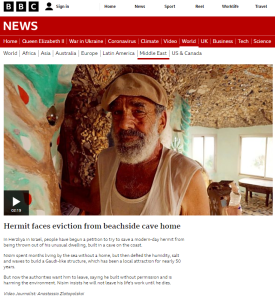
The Oxford dictionary defines a hermit as “a person who, usually for religious reasons, lives a very simple life alone and does not meet or talk to other people”. Why the BBC chose to use that term to describe a person who used to run a café/ restaurant at the same site, who publicises his telephone number to potential visitors and who gives interviews to the local and international media is unclear – unless one takes into account that Wikipedia uses the same title.
The subject of Zlatopolskai’s two minute and 19-second-long film is presented only as “Nisim”, with no family name given. Almost all the film is given over to presentation of the point of view of Nissim Kahlon, which includes the suggestion that the authorities have only now taken action:
“If they would have told me 30, 40 years ago I would have left.”
However, Kahlon has been presented with eviction and demolition orders in the past.
The film does not include an interview with a representative of the relevant authorities and their view is presented in just four sentences of subtitles:
“He has been ordered to leave by the Ministry of Environmental Protection. They say the structure is dangerous and is harming the environment. […] The authorities say he has no permission to build here. They claim the building work has left the cliff in danger of collapse.”
According to local reports, the Ministry of Environmental Protection states that the structure in question is made up of more than fifty spaces and openings dug into the cliff and damaging it, as well as blocking public access to the beach and harming ecological systems. Experts also say that the compound includes electricity and communications infrastructure, sewage, water and a ten-meter-deep well, all of which were constructed illegally and without the necessary permits.
This story was reported in the local media in July, when the Ministry put out its warning letter to Kahlon and the local council. Quite why the BBC has now decided to produce a one-sided film about what is clearly a local interest story involving a person who has engaged in illegal construction on nationally owned land adjacent to a national park is unclear. One very much doubts, however, that the protagonist in any similar story in the UK would be romanticised in this fashion.

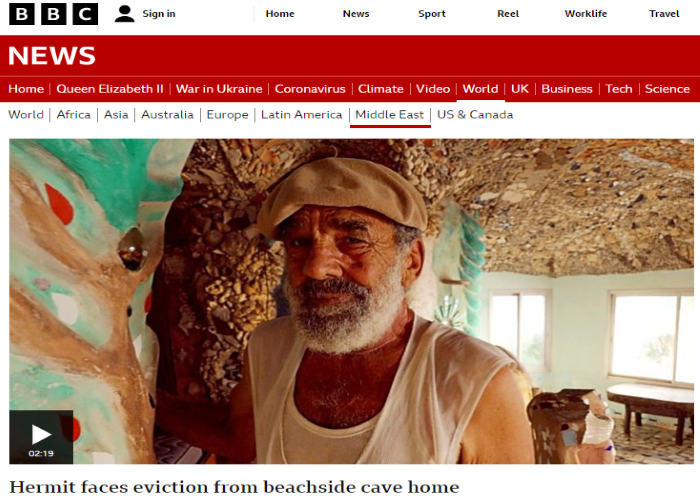

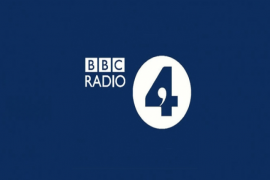
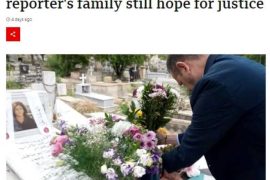
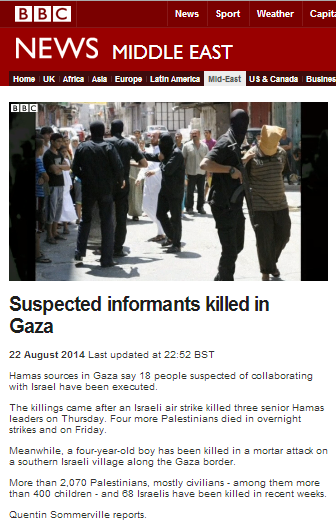
BBC is paid by the anti Israel organizations to focus in on such rubbish!
Have they done anything similar in Aran countries?? Doubt it – they would be declared persona non grata!